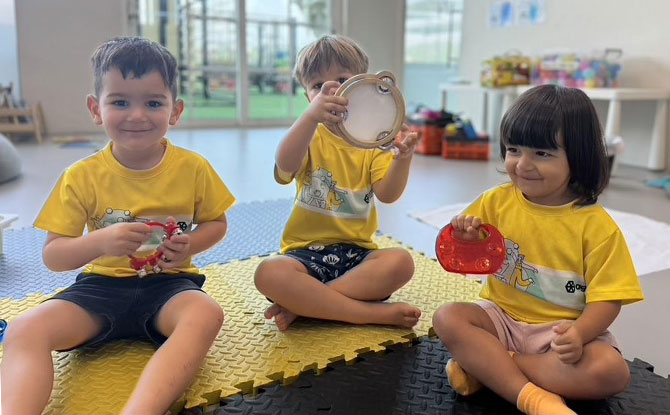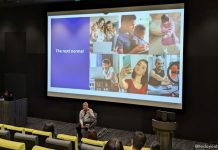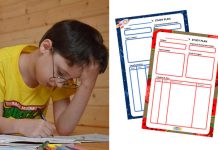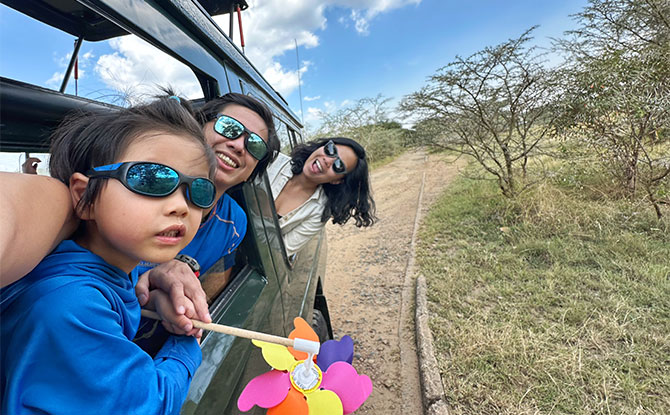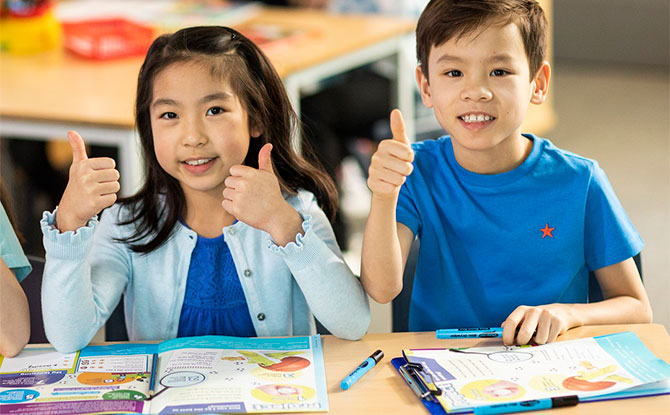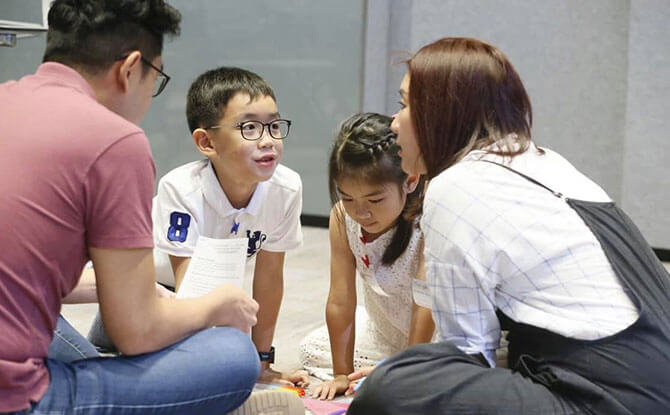
Recently, international think-tank DQ Institute launched the world’s first real-time Child Online Safety Index (COSI) on Safer Internet Day 2020, 11 February. This study surveyed 145,426 children and adolescents in 30 countries across the globe.
COSI & Online Risks to Children
COSI assesses children’s online safety status in different countries. The index is made up of six measures: Exposure to Cyber Risks, Disciplined Digital Usage, Digital Competency, Guidance and Education, Social Infrastructure and Connectivity.

Little Day Out: Can you tell us more about the 2020 Child Online Safety Index (COSI) by DQ Institute, the significance of the index and how should parents view it?

Year-end Holiday Camps: Discover Fun and Exciting Camps for Kids; Book Early
Farm Fright: Join City Sprouts For Their Halloween Bash On 26 Oct
As leaders of our children, parents should be aware of the key areas that our 8 to 12 year olds should be supported in. For example:
“Nearly one in five children aged eight to 12 surveyed has experienced “risky contact” of some sort, which was defined as meeting online strangers in real life or getting unwanted online contact of a sexual nature. That statistic spikes to one in three among teenagers.
Two-fifths of children aged eight to 12 have been exposed to cyber bullying, either as bullies themselves or as victims, with the number going up to over half for teenagers.
23 per cent of children in the younger age group have encountered cyber threats such as phishing or hacking, while half of all teenagers have also encountered them.”
The question I often ask myself is: How can we work together as a society to better support our children growing up in the complex digital age? I believe there is so much potential for us as a society to come together to give our children a strong foundation as they prepare to enter their teenage years that will be increasingly saturated with media.
According to 2020 COSI, 60% of children ages 8 to 12 continue to be vulnerable to at least one cyber risk.
In Singapore, we see a lot of the young with access to a mobile device, making them vulnerable to cyber risks. What should parents be aware about these risks?

In my work with families over the years, I learnt that many parents do not realise how important it is to prepare their children for the digital world.
Some parents feel the fear of missing out, thinking that since many other young children are already using devices and social media platforms (lower than the minimum age requirements of the platforms!), their children may be deprived of similar exposure.
I often remind parents that we should consider giving ourselves sufficient time and space to build values and character in our children, as well as the skills to differentiate what is right and wrong, healthy and not healthy, before they start their online life. Such skills take time to role model (and we need to ask ourselves are we being a positive role model or a negative one?)
More importantly, we need to consider how our children’s brains are developing when they are 8 to 12 years old. They are still very much discovering about themselves and making sense of the world. They are going through puberty.
When they consume media involving various complexities of life, they may not understand or be able to process what they have consumed. Sometimes their views of the world are shaped with values that may be different from what the families hold, without the parents even knowing because parents do not understand the power of media on young children.
What are some of the common issues that you see in children in Singapore based on your interactions with parents, children and educators?
From my own experience in working with educators, families and children, some of the key areas include:
Exposure to pornography
My experience has been that families find it difficult to have conversations on this topic; some parents may not understand why pornography is harmful to us, regardless of age. I have often referred educators, families and youth to this useful site that explains in simple terms the three reasons why pornography is harmful. I also carry books that can help parents to talk to their children about how to differentiate between good pictures and bad pictures, and what they could do when they encounter bad pictures. These pictures books are suitable for ages 8 to 12, as well as 3 to 7.
This topic also requires a broader conversation with children about healthy sexuality, which parents often find difficult to broach, nor know how to lead the conversations in a developmentally appropriate way. I hope to be able to support families in these areas, as part of supporting children to be prepared for their teenage season.
Understanding health identity and relationships, online and offline
I just had a session with teenagers on the topic of healthy relationships and sexting earlier this week. I was thankful that the international school that I worked with valued the home-school partnership. They accepted my suggestion that before I speak to the teenagers, I should speak to their parents to let them know what I will be speaking to their children on, and how they could have conversations with their children after their session with me. The parents were appreciative of the opportunity to discuss this topic openly, and so were the teenagers.
Cyberbullying
I noticed that people have different definitions of bullying, depending on how resilient they are. How this is impacted by the kinds of media that our children consume is debatable; some literature find that exposure to violent and crude media content such as gaming, videos and movies contribute to aggression. Others find that there may be other contributing factors.
In any case, parents of both the bully and the bullied need to be supported, so that they can manage themselves and their children well. There are many resources available online for parents to refer to. One of the most useful resource I know is at Facebook’s Bullying Prevention Hub, which Facebook collaborated with Yale Center for Emotional Intelligence on.
How media shapes a child’s identity and views of the world
I notice that educators and parents alike are often surprised at the maturity of young children. If we step back and think about the kinds of media that our children have access to – music, videos, movies, games – it is not too difficult to understand why. It may also propagate not just fake news, but many things that are “fake” – e.g. that we need to have certain body attributes to be attractive and of value. We – parents and schools, need time to teach our children what is reality before they encounter half truths or lies about their identities and views of the world. Teach them what is real reality before they get involved with virtual reality and augmented reality.
How should parents and educators deal with such issues?
I believe that the huge gap that needs to be filled is coming together as families and schools to deal with such issues as a team. Schools can only do so much during the limited time they have with the children to discuss such topics.
Families are the ones who grow with the children and deal with these issues as they journey through their growing years. There is much scope for sharing of information and good practices; what if time and space is created for dialogues beyond academic areas e.g. during Parent-Teacher Meetings that can go deeper on such character-building and identity-forming areas?
The challenge has been that schools do their best e.g. schools have invited me to speak to all parents per level during their Meet The Parents sessions, but I only have very limited time to cover the issues. It is much harder to have the attention of all parents in other parts of the year; not many parents attend workshops. Yet parents need to be equipped to deal with the issues before they encounter problems.
I have been wondering if the digital divide is no longer about having access to technology, but is about how technology is used. Parents of young children, especially those from needy families who are provided with free devices, may not prioritise attending workshops to understand how to set healthy media boundaries for their children.
In fact, many parents themselves may not have healthy media habits, e.g. they de-prioritise meal times as family times; they use devices as a means of distraction in exchange for a compliant child who eats without much moving while their eyes are glued on their device.
Parents who take time to understand child development and how media habits impact their young child will enable their children to have a stronger head start.







